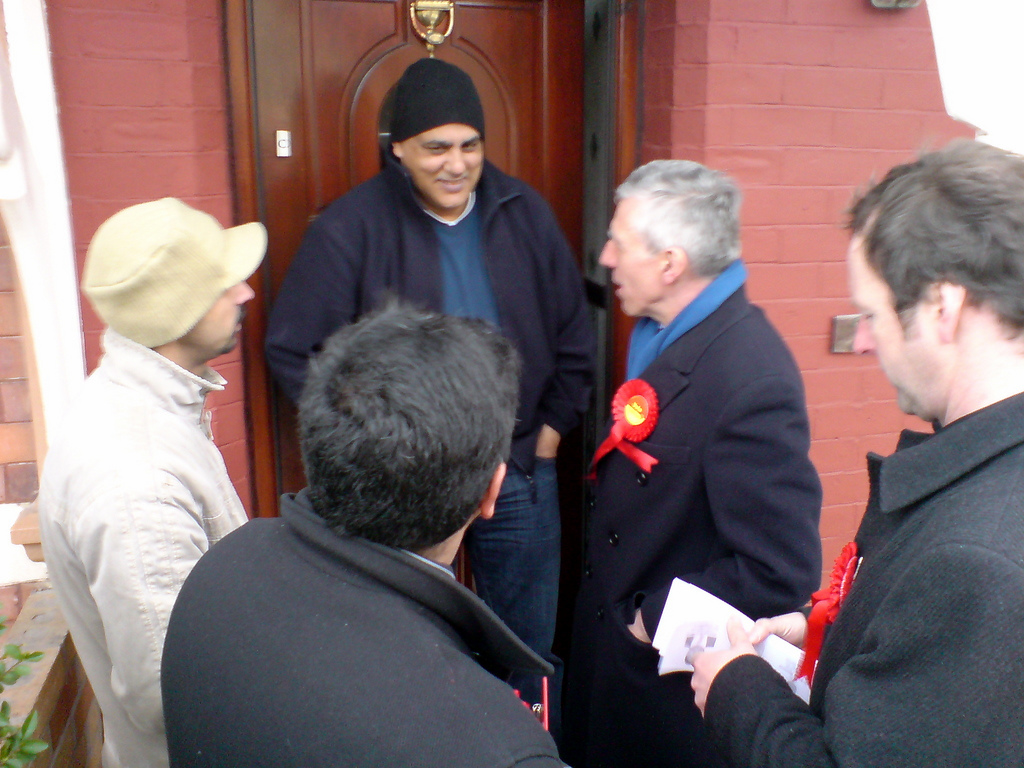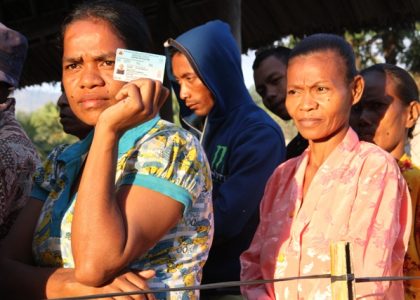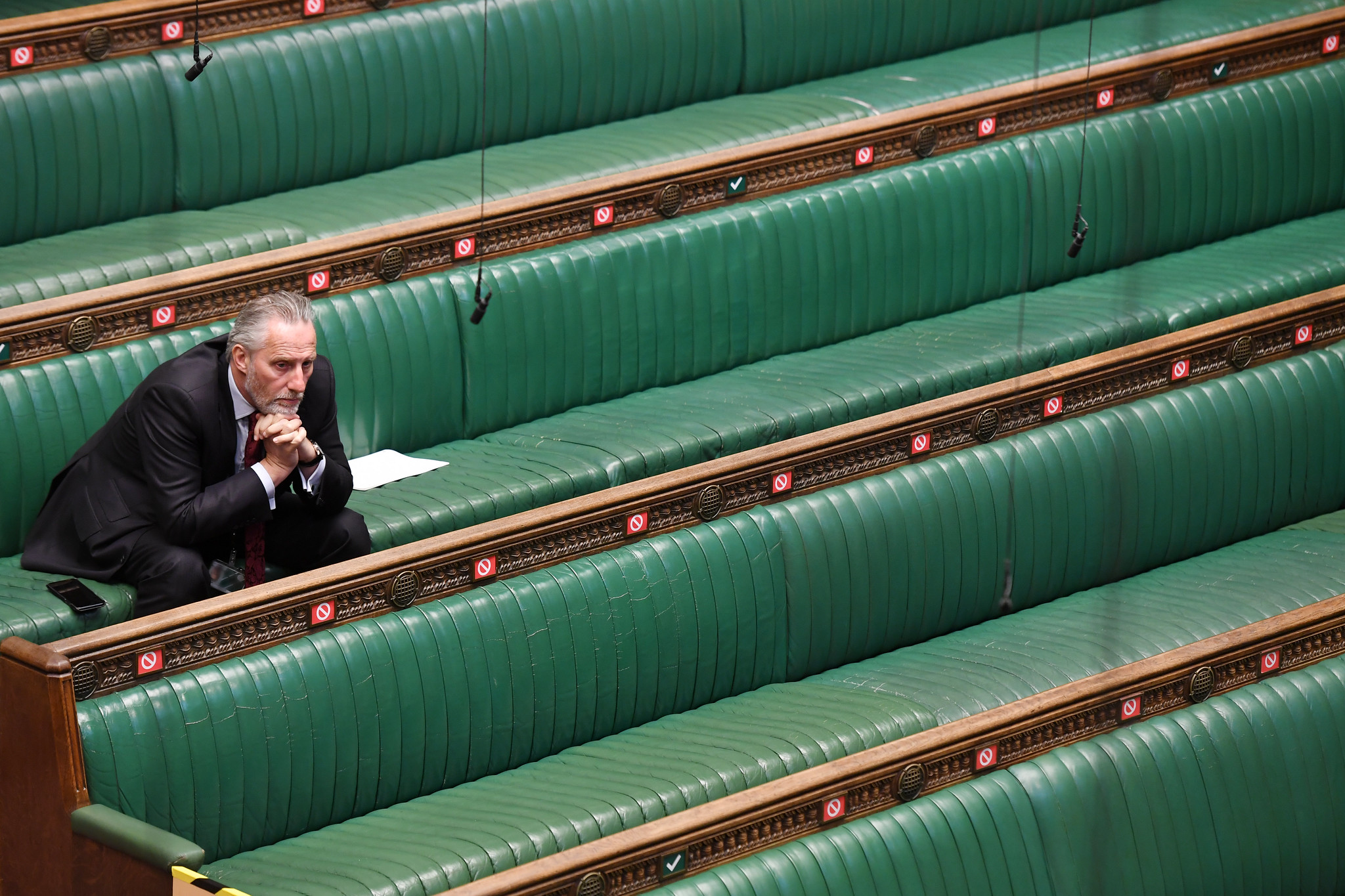Mark Wells stood as a candidate in both a general election and European election. The European election was much less engaging for candidates and the electorate, he argues, because of the proportional electoral system.
In the early years of the century, building on the dizzying heights of a power-base established by election as a rural District Councillor, I found myself dabbling in politics on a national and international stage. In 2001, I was selected as a Labour candidate in the General Election. In 2005, I made it onto the Labour Party list as an European candidate.
My experience of the two elections could not be more disparate.
In the general election, I stood in a seat, South Norfolk, which demographic change had rendered strongly Tory. In the days, however, when the land was worked by hand rather than machine, the constituency had returned a long list of Labour MPs. So there was a party structure and a tradition to defend. The constituency is geographically large, but manageable. It was possible to target areas and work them assiduously. As the local candidate for my party, the local media was interested in what I had to say, and it was possible to get online, press, radio and TV coverage. Even Polly Toynbee pontificated on my campaign in the Guardian (although she doesn’t talk about it much now, in those days she favoured electoral deals with the Liberals. Apparently, I was an old-style class warrior because I urged my supporters to stay true to their principals, rather than indulge in tactical voting).
At an inter-party level, candidates for major parties were able to collaborate on hustings meetings. We jointly took party in a televised constituency debate.
What’s more, the electorate knew what was going on. They knew what we stood for, they understood the ‘first past the post’ electoral system. As we harangued them in shopping centres and supermarkets, outside schools and churches, knocked on their doors and pressed balloons on their children, they stopped and gave us the time of day.
The 2005 Euro election was fought under a form of PR, using a closed party list across the whole of the Eastern Region. The major parties, then as now, selected a list of candidates equal to the number of seats. Once we had been chosen by the party as candidates, we had to fight each other for votes from party members to establish a pecking order. After that, we were required to unite as a single team. The sitting MEP(S) would top the list, the rest of us would fall in behind. In a constituency with one sitting, male, MEP, and a previous MEP standing again, plus a party ruling to go man-woman, man-woman through the list, I wasn’t surprised to find myself taking the tail-gunner position.
So what did it mean? There was no longer a territory to call my own, no longer a campaign to run, no personal votes to win. I was there to make up the numbers.
The media were completely disinterested in anything I had to say. They had done the rough math: they knew I would not be elected under any circumstances. They were interested only in the top two or three on each list. Not particularly interested even then however, as they found it hard to relate any candidate to their particular area.
When it came to campaigning, I spent most of my time in the car, covering long distances. Nobody, not even party supporters, had much idea who I was, or what I thought about anything. And the same went for most of the other candidates, so far as I could see.
The election count for the General Election had been an exciting evening. I didn’t expect to win, but I wanted my vote – yes, votes actually cast against my name – to hold up. The Conservative candidate was new to the area: how much of the previous incumbent’s vote would he pick up? And the Liberal Democrats thought they were on a roll. After council wins, they believed the East could be the new South West. There was a lot to play for.
I got to make a speech: not exactly a personal victory speech, but I could point out that whatever had happened locally, it was my party which would be going back into government. So that got up all the others’ noses.
And to be fair, the person elected was the local people’s choice.
The count for the European Election was a dismal affair. It took place long after the last vote had been cast. We all turned up at a sports hall in the middle of nowhere memorable. It was a weekend evening. Sorting the boxes, putting the votes into little piles, checking and re-checking, it all took hours. From our own predictions, we had a pretty fair idea of what would happen. By mid-evening, party supporters were looking at their watches and sidling away. As the clock neared midnight, even the candidates were losing the will to live, and making their excuses. I heard the result in my car, nearly home after an hours’ drive.
Finalising the results of an European election is a protracted mathematical nightmare. This is from the Electoral Commission’s own website:
“In a given region the allocated seats are awarded using a quota system. The quota is the total number of votes received by a party or independent candidate divided by the number of seats already gained in that region +1. So, for a party with no seats the number of votes received is divided by one, and so stays the same. If the party already has one seat then its number of votes is divided by two, if it has two seats it is divided by three, and so on. This means that the more seats you have already won, the harder it is to gain extra seats, so the overall allocation of seats is more proportional to the number of votes received. The first seat that a party wins goes to the first person on its list, the second seat to the second person, and so on, until the party has either not won any more seats or has run out of names on its list…”
Clear as mud.
Does it matter? Well, how much the candidates enjoy the process is probably a secondary matter. But this remote, coldly mathematical process, one which has no relevance to local media and even less to individual voters, puts distance between electorate and elected. No wonder many people think the EU is an undemocratic institution. In reality, the PR system in use is too democratic to stir the blood.
There has to be a better way.
Mark Wells is currently Course Director for Broadcast Journalism and the Project Manager of the PSI/EU Interreg project, SeaMedia.
Photo credit: Wikipedia






“In reality, the PR system in use is too democratic to stir the blood.”
In reality there are many PR systems – just as there are many non-PR systems.
In reality the “closed list” PR system, puts selection of individuals into the hands of the parties and expects us voters to then abdicate our choice of “representatives” to one of those parties. I don’t like it not because it is “too democratic”, but because it is profoundly undemocratic – I as an elector cannot choose my representative.
If I could choose specific individuals, candidates might see some purpose in soliciting my vote. That might stir the blood (of both voters and candidates).
As a country we seem to have a problem with “numbers” and concepts like “divided by” and see such things as a “protracted mathematical nightmare”. It’s simpler than five mates dividing up a restaurant bill when someone did not have the popadoms, and someone else did not have a second beer! So it takes 10 hours to decide who is going to represent a few million of us for 5 years. If speed was important a dictator could decide in one second – no maths involved.
We have to overcome this inability to cope with numbers *if* we want to get to a system whereby our representatives are “representative”. Which surely has to mean a greater proportion of those voting recognise that someone who has been elected represents their views.
PR systems mean that, for instance in a four member seat, typically 80% or more of the voters will recognise at least one of those elected as reflecting their vote. In a nine member seat it will be 90% or more. (It’s the maths what does it: n/(n+1).) This is well over the 35% to 45% in most First Past the Post elections.
I also believe that parties should not squeeze out diversity (which is what list systems tend to do – you conform to the party line if you want a viable position on the list). Why can’t I (a mere voter) be trusted to choose between New and Old Labour, between Europhile and Europhobic Conservative, between “soggy” Liberal and Neo-Liberal, between Light Green and Dark Green etc.?
It should not be a matter of liking / disliking “PR”; it should be a matter of recognising and using a system that can effectively respond to voters’ views in order to elect “representatives”.
For discussion of the maths and vote effectiveness of the 2001 General Election in Norfolk and the 2004 European Election in the East of England see my analysis ( http://wp.me/pUTZ7-42 )